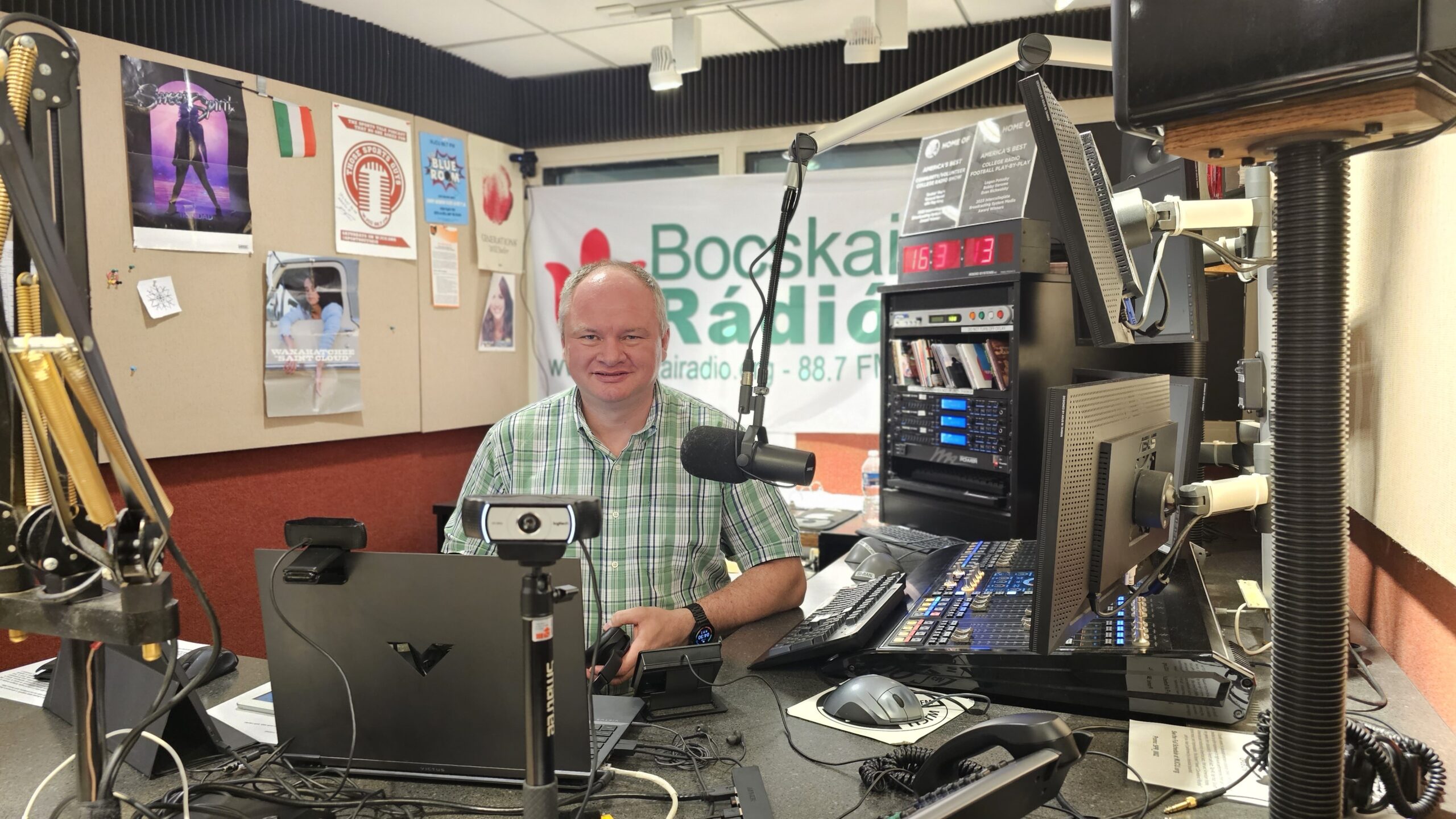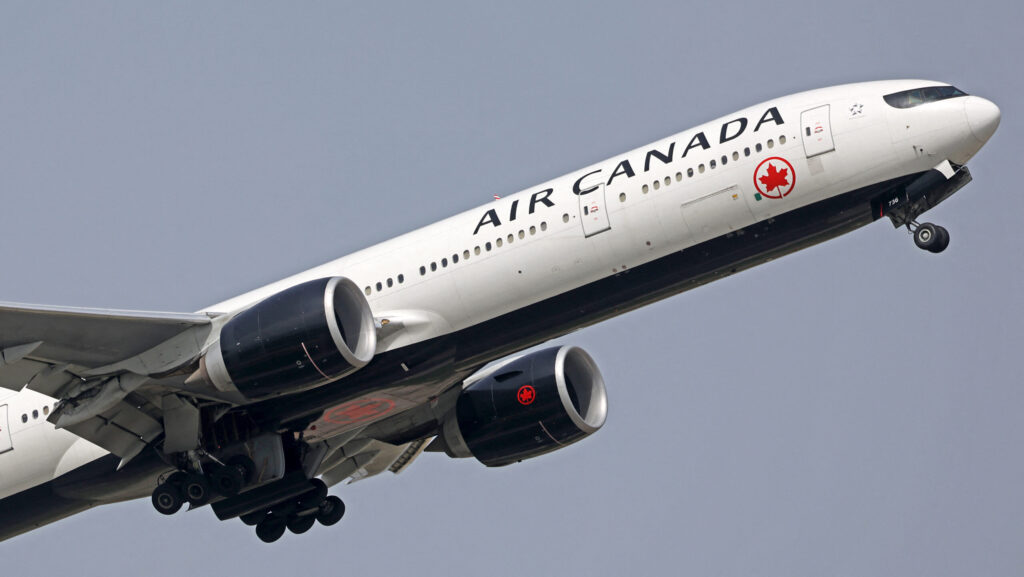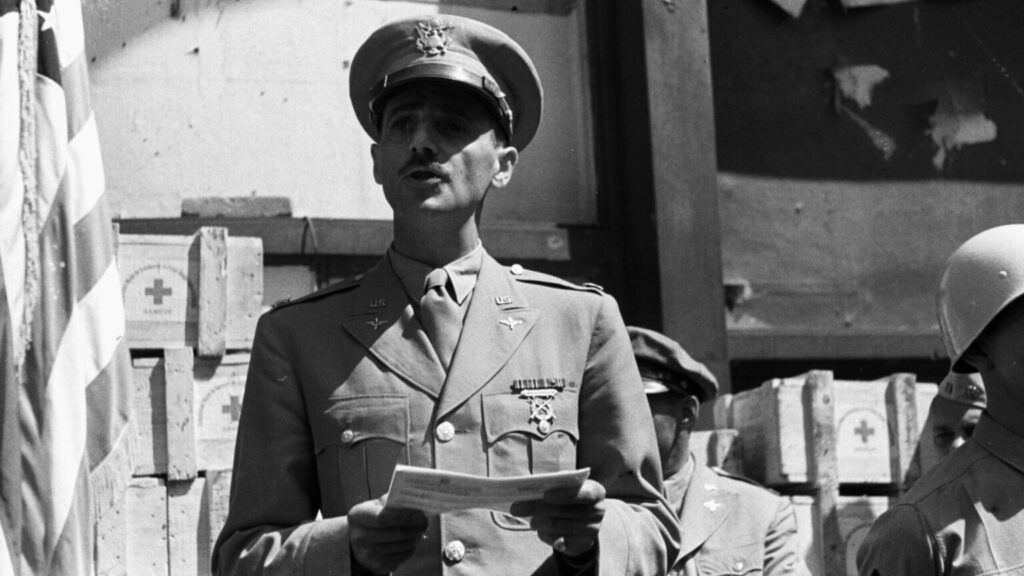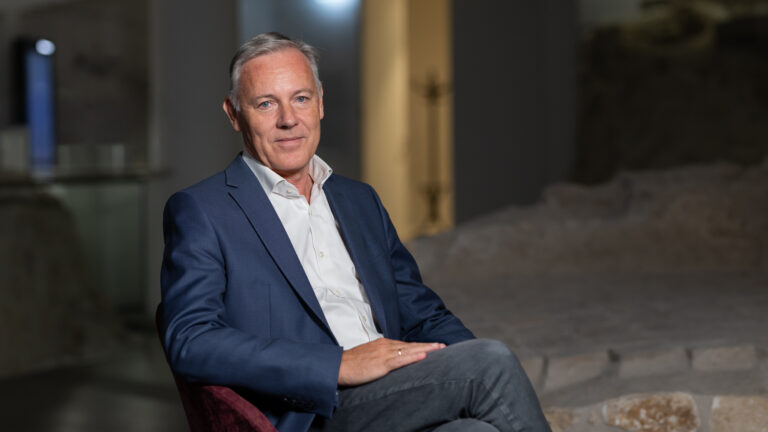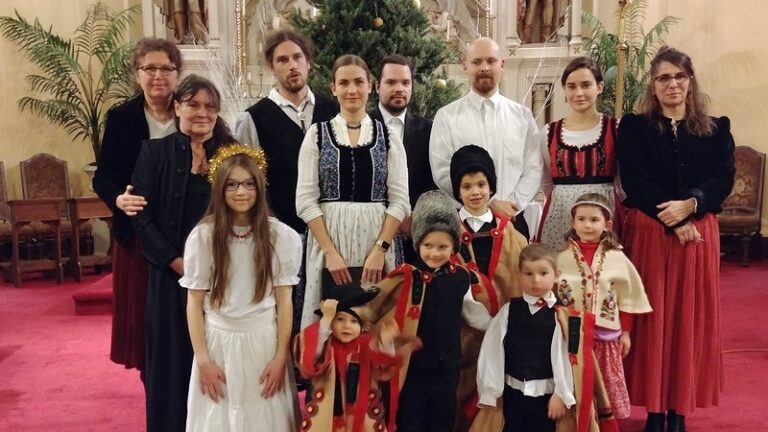This is an abridged version of the original interview first published on 777.hu.
I met Zsolt Molnár when he invited me to Cleveland, Ohio to meet with Hungarian Americans in that area. He took me to the Hungarian Catholic and Reformed churches in Cleveland, as well as to the Csipketábor (Lace Camp) in Michigan, and the Hungarian School Camp in Fillmore, upstate New York. On our way, I interviewed this folksy, joking man and I was astounded to learn that there had been much tragedy in his life.
***
Transylvanian Roots and Family Tragedies
Zsolt was born in 1974 in Marosvásárhely (Târgu Mureș, Transylvania, Romania). His parents are Szeklers: his father originated from Miklósfalva, his mother from Kovászna. They both studied in Marosvásárhely, where they got married and started a family. His father, who worked as a purchasing agent for construction companies, had run-ins with the communists, and after a few years, the family had to leave the city. They ended up in Brassó (Brașov), where they found work (his mother was a dental technician) and lived in the suburbs. Zsolt’s earliest memories are of this city, where he attended the Hungarian class of a Romanian school.
‘That’s where I had my first experience of being Hungarian. We didn’t live anymore in a block Hungarian community like before, and in the afternoons, I played with Romanian children most of the time. During school breaks I used to fight so much with my Romanian schoolmates that they would beat it into me that I was Hungarian. We were always careful not to beat each other to death, though, and we always went home together,’ he laughed. The family spoke only Hungarian and attended the large local Hungarian Baptist congregation. They lived close to their grandparents in Kovászna, so he and his older brother spent many weekends and summers at their house.
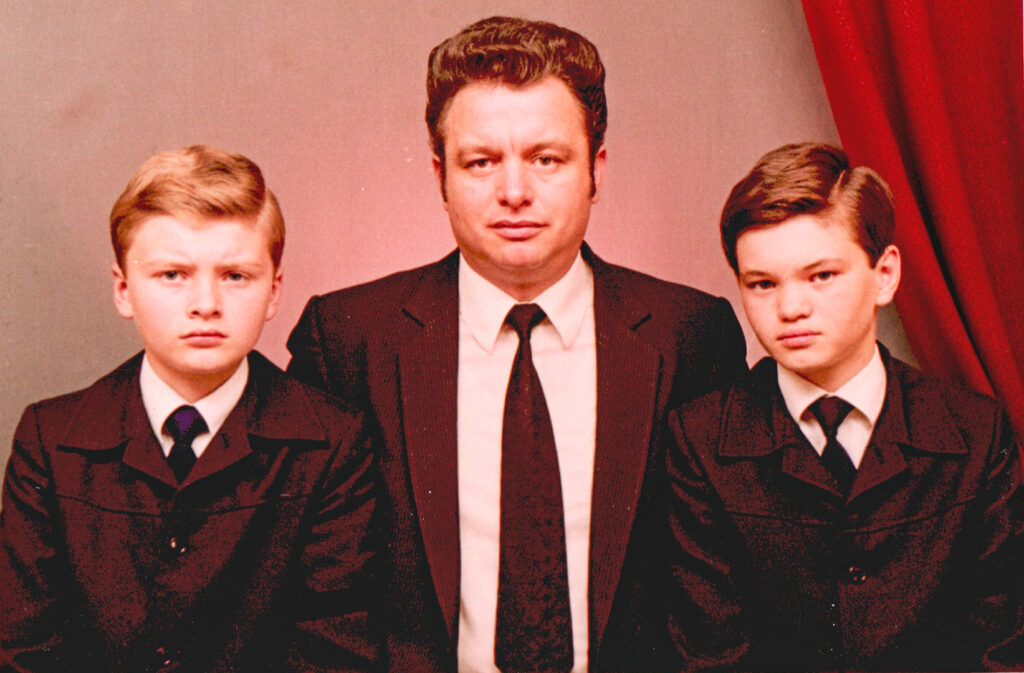
The next stage of Zsolt’s life is linked to Kolozsvár (Cluj Napoca) as a result of a family tragedy. When he was in fourth grade, he lost his mother, who drowned in the Black Sea during a summer vacation. Three years after her death, his father married a woman from Kolozsvár, so they moved there, where Zsolt’s half-brother was born. From the eighth grade onwards, he went to the Báthory István High School. Although their immediate neighbors were Romanians, they lived in a fully Hungarian environment and developed Hungarian intellectual contacts. ‘The Baptist congregation in Kolozsvár was a gathering point: young Baptists from all over Transylvania went to university there; there was a big youth community life within the church, but we also kept in touch with the Reformed Church.’ After the communist regime change, there were many regional Baptist youth meetings, but not yet national ones. Zsolt, as one of the leaders of the local youth, organized the first national Baptist youth conference in Transylvania in 1996, at the age of 22, which was attended by thousands. This event became a defining life experience for him.
When I asked Zsolt what gave him the courage to take on organizing such a major event, he said the year before the conference he attended the Christian festival in Dresden, Germany with 60,000 participants and observed how they had organized such a large-scale event in terms of accommodation, catering, logistics, etc. ‘I was never a theoretical person or a big talker, I was more of a technical person and a good organizer; I recognized the potential of organizing events and getting things done. Within the Baptists, the supervision by the pastors was quite strict, but I was supported in many aspects. I was never the first person in charge, but more like the second person to figure things out and implement them.’ Zsolt may have inherited his good organizational skills from his father, who became a developer immediately after the fall of the communist regime. He built many churches, such as the Bulgarian Reformed Church in Kolozsvár, the Baptist Church in Székelyudvarhely (Odorheiu Secuiesc), and various churches in smaller and larger villages in Hungary.
The next stage in Zsolt’s life was starting a family. He married a girl from Biharszentjános, a village near Nagyvárad (Oradea), whom he met at a Baptist camp in Hargita (Harghita) and courted for four years. ‘My father worked in Hungary at the time, and I took every opportunity to accompany him and stop at Erika’s house on the way. The headquarters of the Baptists in Transylvania was also in Nagyvárad, and I took on all the youth duties to be able to visit her there as often as possible. I felt I was financing the Romanian railways,’ he laughed.
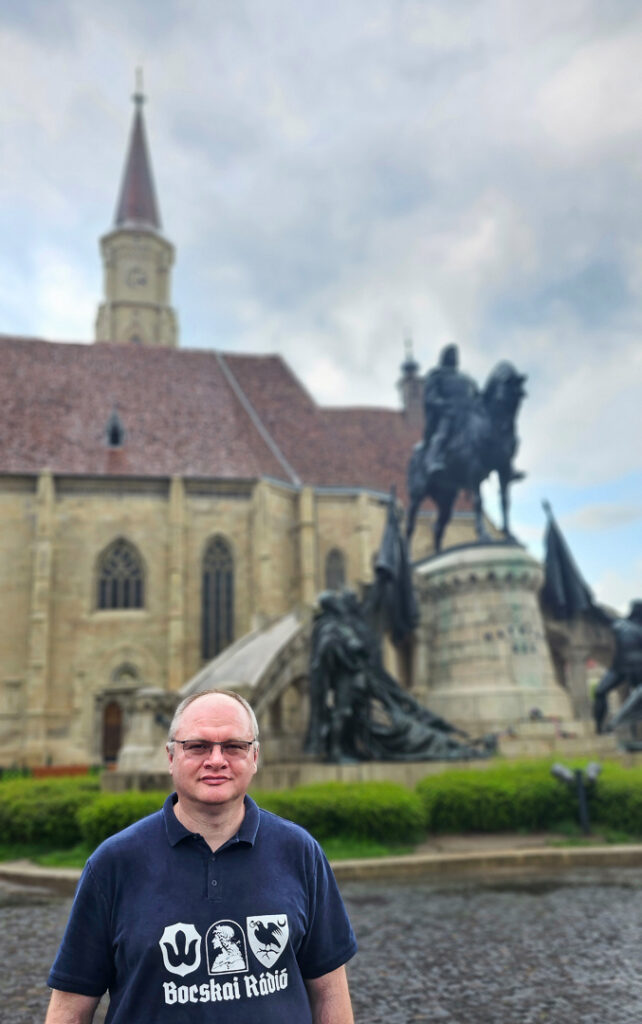
After they got married, Erika moved to Kolozsvár and began her studies majoring in sociology and pedagogy. A year after they got married Zsolt suffered another family tragedy, when his father died in a car accident. Apart from coping with becoming an orphan, Zsolt also had to take over his father’s various businesses. He built a wood processing plant but had to close it down after a few years. ‘We didn’t go into debt, but we didn’t get rich either. Meanwhile, my wife was diagnosed with cancer and underwent chemotherapy for six month. It was a very tough couple of years. On top of the losses, we also encountered unkindness from people. I was told I shouldn’t have married a sick girl. She was forced out of the church choir because she lost her hair due to chemo.’
In America
Against such a backdrop, after spending a vacation in America, they decided to relocate. Zsolt sold his businesses in Romania and Hungary, and after a seven-year gap, he also finished the university in Kolozsvár (he was unable to take his state exam due to the unexpected death of his father). In the U.S., he initially took on all sorts of jobs (elder care, cab driving), then started a successful slate roof restoration business. Unfortunately, two and a half years later another tragedy happened. Zsolt fell from a roof of the height of two and a half stories and landed on concrete. ‘I broke everything that could be broken. I had to have immediate surgery, during which they removed one of my vertebrae and strengthened my spine with a metallic implant. My left leg was the only part of me that wasn’t broken.’ He spent six weeks in the hospital, a record time in the U.S. After the successful surgery, he had so much energy that he was convinced he could resume his previous life. ‘The doctor wanted to send me to a nursing home, but I kept trying to prove to him that I could rehabilitate with a cast. I had to show him what I could do with one leg, so I jumped around the room. He finally agreed. I was given a walking frame that was strapped to my upper arm. It all worked out well, I was in full recovery.’ It was two or three months later when he first saw on the xRays what his back looked like.
‘At first, I couldn’t speak. That’s when I realized that I’d never be the same again. This put me into such a deep depression that no one, not even the specialist, could help me. Rehabilitation lasted for nearly three years. I went every day to hand and foot therapy or to a psychologist. My body healed nicely, but my soul didn’t. I applied to a college to learn a new profession, website development, and to improve my English. I knew life had to go on, but my momentum was gone…’
Zsolt was led out of depression by Radio Bocskai at John Carroll University, but he wasn’t aware of this at the time. He was approached by the editorial staff to help them with IT matters. The elderly editors, a couple, Dániel Kádár and Mária Záveczky, wished to move to Hungary and first had to find an apartment, so they asked Zsolt to help them prepare five radio programs in advance. During the 18 years they ran the radio station, they never once missed a live broadcast, so they didn’t know how to prepare pre-recorded materials. When they came back from Hungary, they confessed to Zsolt they’d like to hand over the radio to him. This happened in the autumn of 2012 and he didn’t say yes straight away, but he started to help them more. ‘At first I was just a “button pusher”, I didn’t speak for barely six months. When Mária finally convinced me to speak for the first time, my stomach was shaking so badly that I could see it through my shirt. I will never forget that first moment…’
Slowly, he got into the swing of things, taking on more and more responsibilities and eventually taking over and transforming the radio station. Zsolt’s vision was to turn the Bocskai Radio into a radio station for the local Hungarian community. Previously, the radio broadcasted exclusively news originating from Hungary, typically with a delay of a few days or even a week. By the time Zsolt got there, news from Hungary could be read, listened to or watched directly from many online sources, but no one else was broadcasting local news. He didn’t want to alienate the previous audience, so he kept the news from Hungary, but moved them to the radio’s website, the social media page, and the Sunday’s email newsletter all launched by Zsolt. He started going out ‘on the field’, preparing reports and interviews about local events, first in the Cleveland area, later in Washington, DC and Chicago, and sometimes travelled even to New Jersey and New York. The broadcast took off nicely, and positive feedback kept coming.
Bocskai Radio
‘My work at the radio gave me new strength, it healed me. I have a new purpose in life. It was also when I realized that money isn’t everything, that joy and success is what drives you, and some people achieve that with money, but not me.’ During this time, they lived off of their savings, while his wife went back to school and became a lawyer. ‘She saw that work at the radio healed what had been broken in me, so she let me do it. Otherwise, it’s not normal for a man with a lot of strength to do something like this,’ he said, almost apologizing, and we debated at length as to what extent media work was ‘real work’. It doesn’t pay well, indeed, but I think it’s still hard work. But he, as a man with family, thinks differently, and thinks if it hadn’t been for his serious accident, he wouldn’t be doing this. To keep the conversation moving, I asked for details about the radio broadcast which starts at 2 pm every Sunday afternoon.
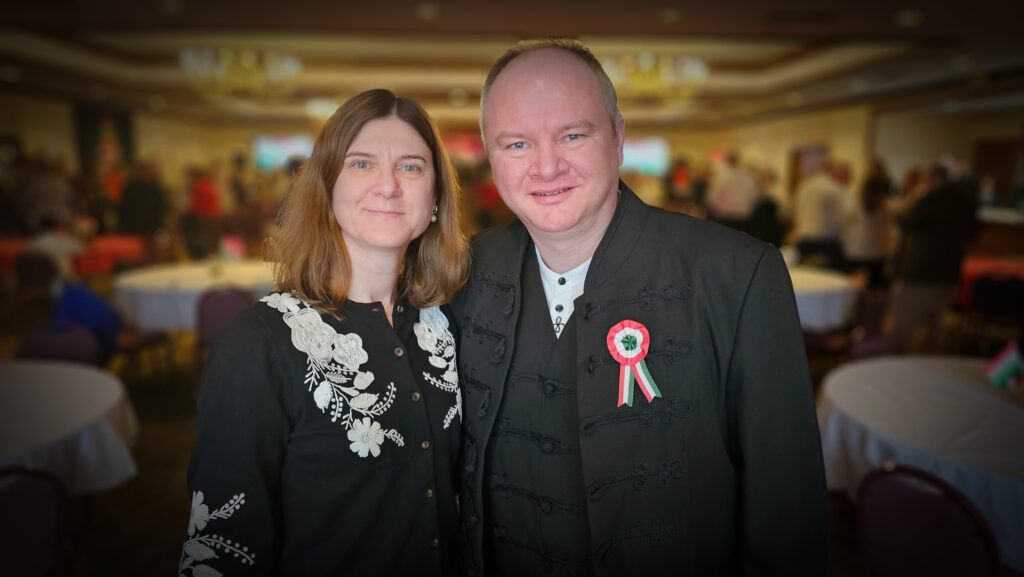
Zsolt explained that the program always begins with the ‘religious half an hour’—something he inherited and kept, because he himself feels it’s important for the leaders of each local congregation to address the listeners. (Since there are five Hungarian denominations in the Cleveland area, but usually only four weekends in a month, the Adventists get 15 minutes once every two weeks.) Thinking more about this, he decided that scouting, which is independent of the churches but closely linked to them, also deserved a half-hour. This is how the now 10-year-old Scout Radio was born. At the beginning, the local scouts didn’t really understand his idea, but finally, tired of his persistence, gave him two young scouts to start with. ‘The youngsters had no idea about radio, one of them didn’t even speak Hungarian properly, but had a good sense of language and wanted to learn, so together we figured it out. At first, I wrote down the interview questions and every line they had to read out. The first broadcast lasted 15 minutes, now they barely fit in an hour.’
The religious half an hour is usually followed by the so-called Songs on the Wing segment, where the invited guest’s favorite songs are played. The second hour is devoted to news, live or pre-recorded events, interviews. The third hour is a ‘mix’, edited by László Stróber: it always includes public service announcements typically about upcoming events and birthday and name day greetings. The Hungarian folklore contest is also a legacy, prepared by Sándor Veres. It’s followed by the Poem of the Week, the What to Cook and the Lifestyle segments, also edited by László. When searching for team members, Zsolt first looked around in the local Hungarian community.
‘I wasn’t looking for buddies, but for someone from each of the smaller communities, so that they’d feel ownership of the radio. Sanyi is Baptist, Laci is Catholic, István Hargitai is Lutheran. During the Covid pandemic, I found Zsófia Dorgay, a very talented journalist from Transcarpathia, who lives in Budapest. I also consider the priests and pastors who broadcast the religious half an hour my colleagues, as well as the Kőrösi Csoma Sándor Program scholar the radio gets every year. Which diaspora radio station has such a big staff?’ he laughed proudly.
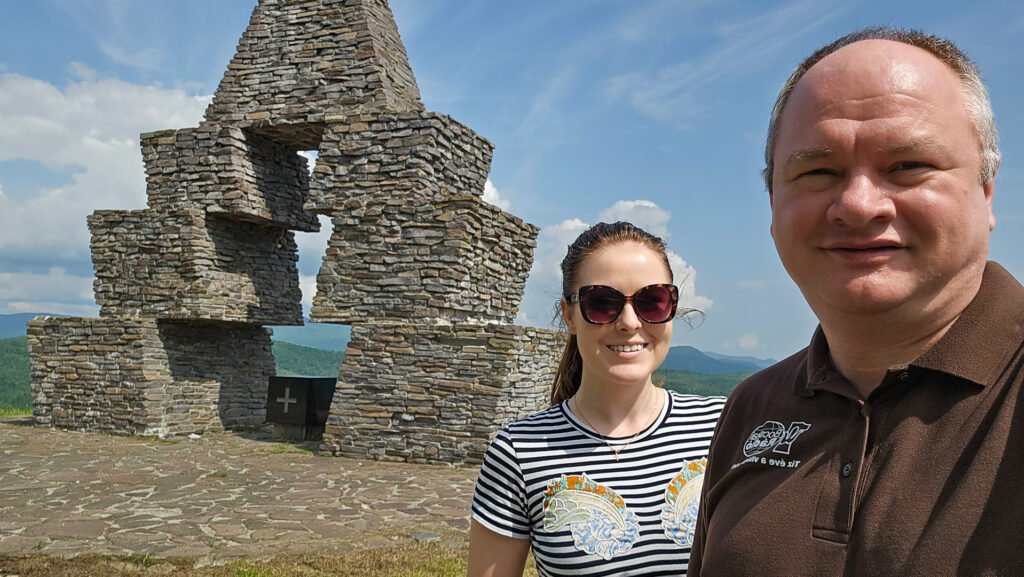
The original scout radio staff has been replaced, and in the meantime the scouts’ leadership has also realized that the radio is worth taking seriously and has sent professional help, Tamás Csajka and Júlia Golden. The backbone of the scout radio is made of scouting events, announcements, reports and interviews. By now, they are ‘self-supporting’, just need a little help with editing. The idea is starting to pay off after ten years, Zsolt laughed, and then, with a twinkle in his eye, he proudly told me how the first scout TV broadcast was born five years ago. At the beginning, only audio material was produced, until Mónika Gyermán and Keve Pigniczky attended a scout camp in Australia. Zsolt provided them with the necessary technical equipment and asked them to bring home some video material. The idea turned out so well that they decided to produce only video material from that point on, initially in Zsolt’s living room. The first Scout TV program received such positive feedback that they kept the concept, and the program has been produced in this way ever since. Zsolt has bought new cameras (from grants), set up the studio so that he can broadcast the whole radio program, and got ready to record in 10 minutes and remove everything in another 10 minutes, because before and after the Hungarian broadcast other nationalities (Polish before, Armenian after) are sharing the same small studio.
‘That’s how we became a TV show,’ he laughed again, visibly proud, and explained how he had learned filmmaking to such an extent that his material was regularly included in the Five Continents program on Duna TV (a nationwide TV channel in Hungary). He recalls how his first filmmaking attempt was rejected, but Duna TV editor Andrea Kalocsai wrote a well-intentioned, lengthy letter explaining why they couldn’t accept his material and what he should look out for in the future. It was then that Zsolt decided to take this job seriously: he applied for grants for the cameras, which he received two years later and watched Réka Pigniczky’s documentaries. ‘I observed every detail and when the equipment finally arrived, I filmed so much that for the first five-minute show I shot three hours of footage, which I edited over three days. But all the work was worth it, because my material made it into Duna TV.’ They even started a collaboration: wherever he went, he made a half-hour program for the radio, and then edited the best quotes and clips into a five-minute compilation, which he sent to Duna TV. This worked for three years, but nowadays Duna TV is asking for 8–10-minute portrait films, which he doesn’t have the time to shoot.
Regarding the radio listeners, Zsolt has no exact figures and cannot afford to pay for a survey. However, he believes 200–500 listeners follow the show via the traditional platform (as a radio), another 50 through social media, while the number of those who listen to parts of the show afterwards may vary from 1000 to 10,000. Zsolt visits every Hungarian church and every community event in the Cleveland area, knows almost everyone and they know him. Of course, there are Hungarians who don’t belong to any Hungarian church community or organization, but sometimes they approach him on the street or in shops, saying they listen to the radio. ‘When I do fundraisers for the radio, I get money from a lot of places from Texas to California, which means they listen to us well beyond the Cleveland area. But the listeners can’t sustain the radio. I can’t expect more from them than what I actually get—an average of $100 per person per year—because I wouldn’t pay more myself. But that’s not the problem, I understand the community is too small to support the radio. But even a small community deserves a radio station; that’s why I’m doing it. And that’s why I need the funding: regular fundraisings and diaspora grants.’
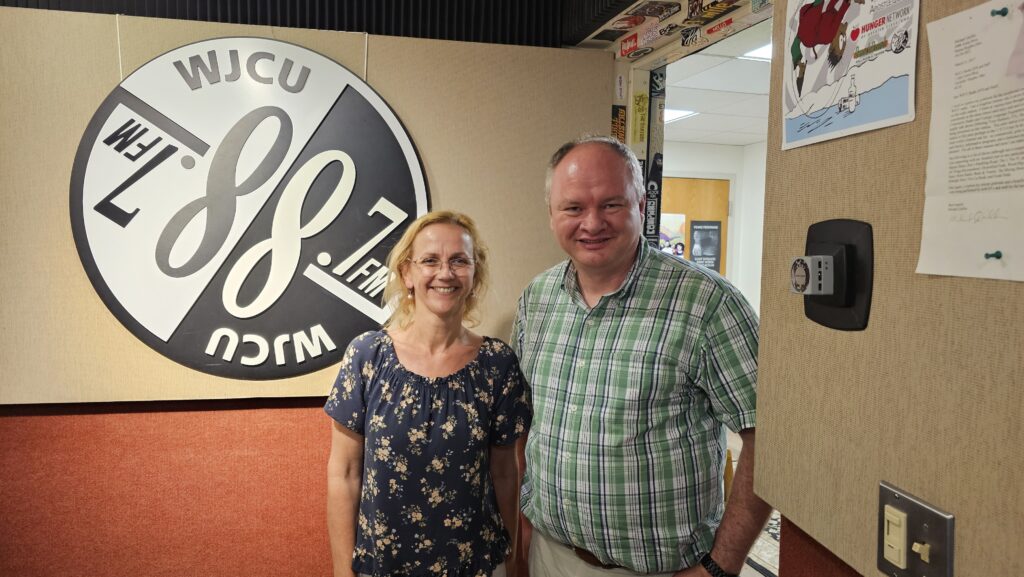
The radio organizes fundraising events twice a year: once for the university that provides the radio airtime, and once for the Hungarian Media Foundation that runs the radio. Zsolt also organizes occasional fundraisers for his colleague Zsófia from Transcarpathia and has also sent money to the MTVA’s (the Hungarian state-owned media conglomerate) charity campaign. Zsófia and the people from her home village, Szűrte are extremely grateful for all donations, as can be seen in the documentaries made by Zsófia and Zsolt about the handing over of the collected funds.
The revival of the so-called Heroes’ Day celebrations also shows Zsolt’s creativity and organizational skills. Scholars used to regularly come from Hungary to Cleveland to collect and repatriate Hungarian American legacies and to work on archiving them. Most recently, a military expert came. Cleveland is home to the graves of many high-ranking Hungarian military officers who were forced to immigrate after World War II. Zsolt did an interview on this topic a few years ago, but felt that the material was too dry, so he organized a celebration around it. The Heroes’ Day was previously organized for a long time by members of the so-called DP generation (‘displaced persons’, i.e. World War II refugees), but their energy ran out. Zsolt, together with the president of the United Hungarian Societies (of Cleveland), former scoutmaster Endre Szentkirályi, organized the event again: they invited the Hungarian military attaché from Washington, DC and a representative of the local military in Ohio. The wreath-laying ceremony included a cemetery tour for VIP guests and became so popular that the local community and even the Hungarian embassy in Washington, DC are expecting it to be continued.
‘At home I didn’t do much for Hungarians, but here, that’s practically all that my life is about’
Zsolt received several awards for his work at the radio: the Hungarian Gold Cross of Merit of the Republic of Hungary in 2018, the St. Stephen’s Medal of the Hungarian Scout Association in Exteris in 2021, the Cleveland Friends of Scouting’s Miracle Stag Award in 2022, and the Washington-based American Hungarian Foundation’s (AHF) Appreciation.
Zsolt revealed that in addition to these happy stories, he has also experienced some difficult situations in the radio’s newsroom due to which he had to think about how to move on. Moreover, he was told during a routine medical check-up recently that the metallic implant in his spine had broken. At first, he was terrified, not daring to move, and in desperation he thought of quitting the radio. But then he remembered his earlier promise. ‘When I recovered, I made a promise to God that I wouldn’t leave the radio. When I remembered that, I suddenly received an energy from the Good Lord that helped me through the difficulties I was having with the radio at the time. I’m not doing it because I would otherwise be bored, it has become a mission for which I have received confirmation several times. I don’t plan to work at the radio until the end of time, but I’m sure I won’t just quit. My back hurts all the time, but it’s possible to live with a broken back, eventually it’s good moving around as much as possible. László Bőjtös, my mentor, the former Honorary Consul General of Hungary, once told me: by living in the diaspora, I can do much more for the Hungarian people than if I had stayed or returned home. I feel the same way: at home I didn’t do much for Hungarians, but here, that’s practically all that my life is about.’
Read more Diaspora interviews:

